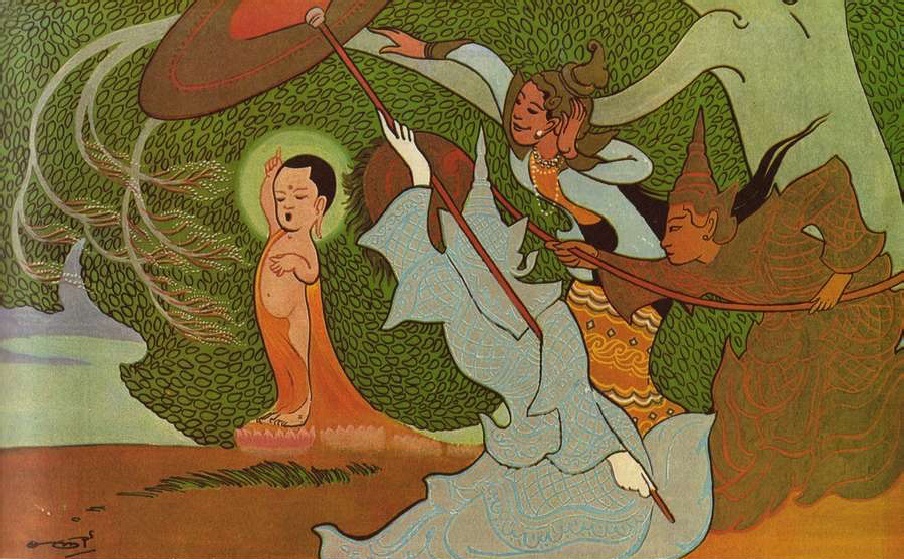The Story of Citta the Householder
Verse 73: The foolish bhikkhu desires praise for qualities he does not have, precedence among bhikkhus, authority in the monasteries, and veneration from those unrelated to him.
Verse 74: “Let both laymen and bhikkhus think that things are done because of me; let them obey me in all matters, great and small.” Such being the thoughts of the fool, his greed and his pride grow.
1. parakulesu: those outside the family; (para = outside or others).
2. gihi: short form for gahapati, householder.
The Story of Citta the Householder
While residing at the Jetavana monastery, the Buddha uttered Verses (73) and (74) of this book, with reference to Thera Sudhamma and Citta the householder.
Citta, a householder, once met Thera Mahanama, one of the group of the first five bhikkhus (Pancavaggis), going on an alms-round, and invited the thera to his house. There, he offered alms-food to the thera and after listening to the discourse given by him, Citta attained Sotapatti Fruition. Later, Citta built a monastery in his mango grove. There, he looked to the needs of all bhikkhus who came to the monastery and Bhikkhu Sudhamma was installed as the resident bhikkhu.
One day, the two Chief Disciples of the Buddha, the Venerable Sariputta and the Venerable Maha Moggallana, came to the monastery and after listening to the discourse given by the Venerable Sariputta, Citta attained Anagami Fruition. Then, he invited the two Chief Disciples to his house for alms-food the next day. He also invited Thera Sudhamma, but Thera Sudhamma refused in anger and said, “You invite me only after the other two.” Citta repeated his invitation, but it was turned down. Nevertheless, Thera Sudhamma went to the house of Citta early on the following day. But when invited to enter the house, Thera Sudhamma refused and said that he would not sit down as he was going on his alms-round. But when he saw the things that were to be offered to the two Chief Disciples, he envied them so much that he could not restrain his anger. He abused Citta and said, “I don’t want to stay in your monastery any longer,” and left the house in anger. Continue reading









